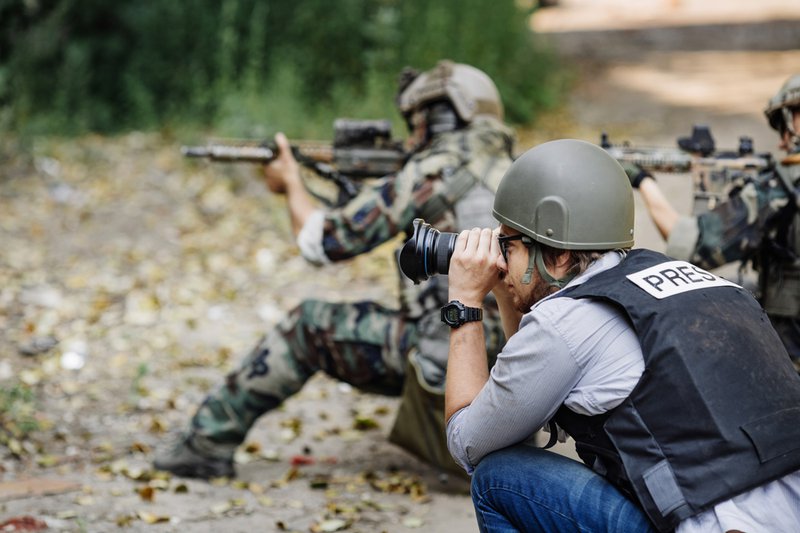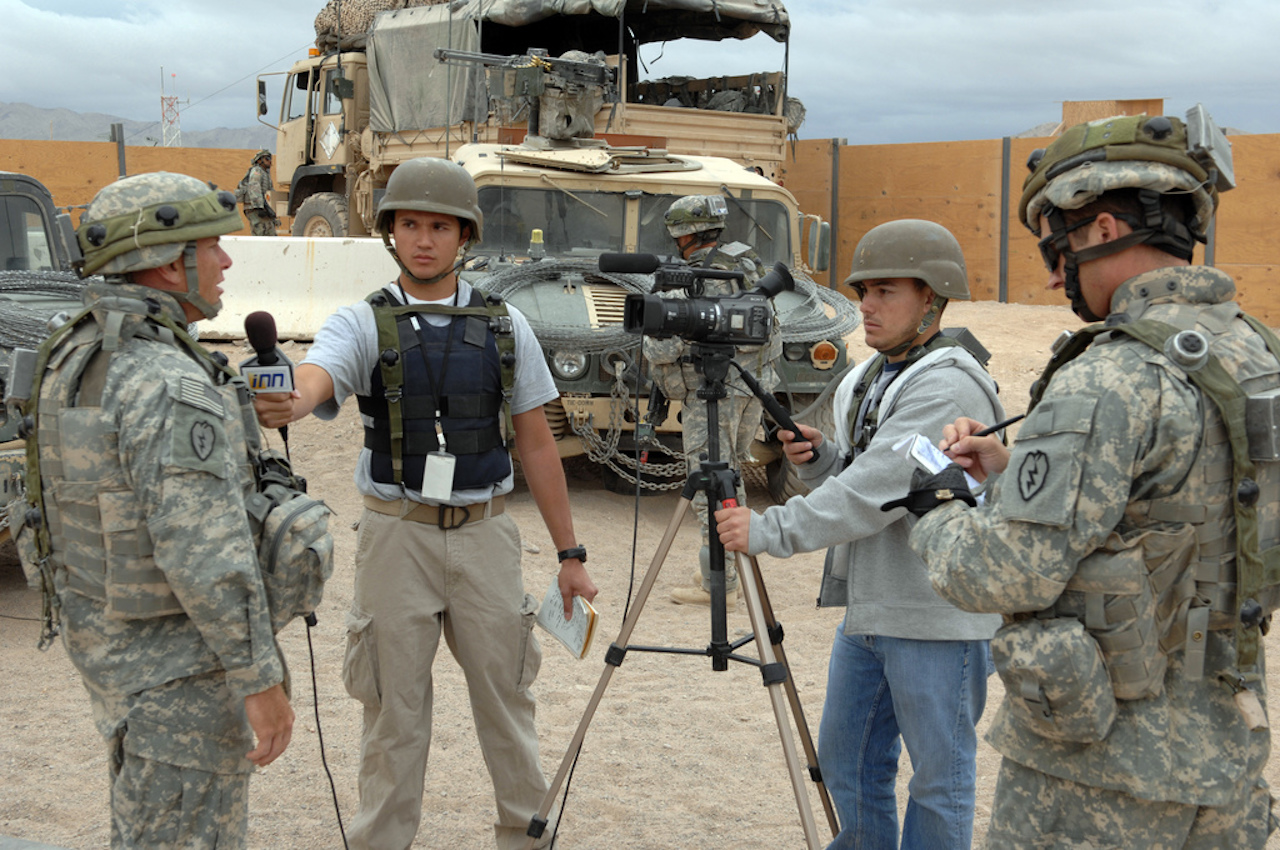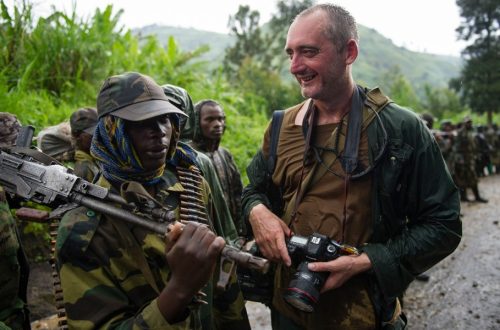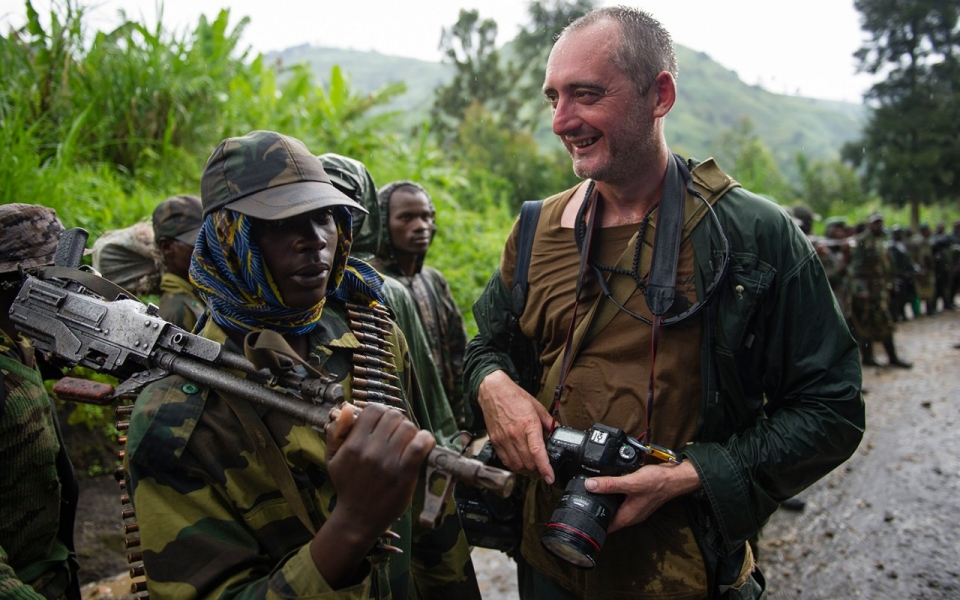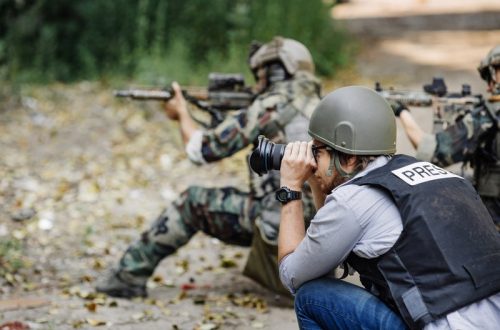-
What Is Being Done About The Journalist Crisis?
The international community continues to come together to formulate different methods and come up with effective solutions to potential dangers facing journalists on duty. It has been acknowledged that journalists face detrimental dangers and require a protected environment to be able to operate.
The international community is taking a few notable steps to this effect. They include:
Formulation of journalism policies favorable for its practice
Revision of already established laws and regulations governing journalism
Establishing enabling global infrastructure, particularly for journalism
Providing guidelines for effective journalism
Educating the public on the importance of journalismWhy Is Journalism In War-Torn Countries Important?
A career path that has spanned centuries into the existence of humanity, journalism has been at the core of information gathering and distribution across different communities throughout the planet. Entire communities are shaped through journalism as information finds its way through societies.
War-torn countries are in need of effective journalism and its reach. It is known that the masses require a common voice or source of information to help maintain a particular level of collective sanity, even through chaotic instances such as conflicts.
Below are some of the reasons journalism is important in war-torn countries;To Keep The Public Reliably Informed
A war-torn country could benefit from direction and constant communication with the public. This informs the population on the status and level of conflict going on while allowing for necessary action to be taken.
To Differentiate Fact From Fiction.
The current digital era has brought forward numerous platforms that have been home to an unimaginable amount of information, on topics ranging from health care to financial acumen. Without effective journalism in a war-torn country, it would be difficult for the public to separate truth from falsehood.
To Encourage Accountability And Transparency
Journalism has the power and ability to demand proper accountability and transparency from parties in charge of their respective responsibilities. War-torn countries are required to report or provide accurate information regarding the conflict and the toll it may have potentially taken on that particular country. This enables the public and the rest of the world at large to assess the viability of the conflict while weighing different options that would lead to the quickest and long-lasting end to the conflict being witnessed.
Conclusion
Journalism is a selfless choice demanding courage, determination, and commitment. Being a journalist in a war-torn country is extraordinarily dangerous and unpredictable. It requires the ability to multitask under hard conditions while still committing to delivering the best possible content for the public to refer to.
The dangers facing a journalist in a war-torn country are close to limitless. They are capable of ending in fatalities and causing generational damage due to the suppression of crucial information.
-
What Journalists Face in War-Torn Countries Every Day
Scarcity Of Basic Needs And Amenities
A war-torn country effectively grinds to a halt in terms of economic and social activities that are crucial to the country’s sustainability. There is a biting scarcity in the supply of basic requirements such as food, water, and electricity. These are typically the most affected sectors in a conflict zone and could cause adverse damage to society in the long run.
A journalist in a war-torn country facing a shortage of basic amenities is at risk of failing to deliver on their assigned tasks as well as facing extreme risk against their well-being.
Alienation
Most journalists across the world have faced the challenge of alienation at least several times during their careers. This is especially challenging in war-torn countries as the possibility of being held responsible for the consequences of conflict by either of the involved parties is extremely high. For instance, a government might hold a journalist responsible for spreading negative information regarding their chosen engagements during a particular conflict.
Suppose an involved party associates a journalist with bias or favoritism against another involved party. In that case, consumers of information provided by that particular journalist might create a negative perception and alienate the journalist. This has been witnessed on numerous occasions around the world, where journalists have been forced into exile or hiding due to being accused of peddling false information.
Consequences
Journalism is a powerful tool in society and is relied upon by civilians and those in power to pass information or make particular information available to the public. Once this process is impeded or interfered with in any way, there are consequences that can be felt throughout the entire community.
In a war-torn country, there have been notable consequences as a result of the challenges facing journalists. These consequences have been experienced both by the general public and the institutions in power. The heaviest burden has, however, been shouldered by the journalist on assignment. These are some of the consequences of the dangers of being a journalist in a war-torn country;
Distortion Of Information
Information released to the public might be subjected to distortion in a war-torn country as the risk of non-conformity to controlled information might be too high. Governments and institutions in power have been witnessed to interfere with journalism with the aim of controlling the nature of information being released to the public
Journalists are, at times, subjected to harsh alienated conditions as a result of the information they have publicized. War-torn countries consist of conflicting sides that ultimately end up in the separation of significant populations. This has a high possibility of alienating involved journalists from either side.
Fatalities And Criminal Acts
There have been adverse effects of journalism in war-torn countries. There have been extreme criminal acts, including kidnappings, torture, and killings, as a result of the work of journalism. This is a direct result of attempts to manipulate the nature of information being made public. Journalists in war-torn countries are being faced with constant threats to their lives and those of their loved ones and have been forced to take extreme measures to ensure their safety while on duty.
Oppression Of Journalists
Journalists in war-torn countries face overwhelming oppression stemming from an imminent threat of a much worse fate. Not being able to freely work or carry out assigned duties is a common challenge facing journalists.
-
The Dangers Of Being A Journalist In A War-Torn Country
Being a journalist is in itself a challenge as a career. Its importance to society is immensely impactful and far-reaching. War-torn countries present extremely difficult challenges and hostile conditions for journalism. The price of compiling and distributing relevant information within these countries can be a steep one to pay. This article takes a look at some of the adverse challenges a journalist might encounter while executing their duties in a war-torn country.
Risk Factors Facing Journalists In A War-Torn Country
The well-being of a journalist is constantly at risk when executing their duties in a war-torn country. Facing multiple challenges to their livelihoods and their families, it can be difficult to complete an assignment in an area marred with conflict. Below are some factors posing a significant threat to a journalist and their work while in a war-torn country.
Uncooperative And Hostile Government Or Regime
For journalism to function optimally anywhere in the world, a relatively functional regime or government must be in place. This establishment is required to provide a conducive environment for journalism to thrive.
What Can A Government Do To Protect Journalism?
A government or regime can implement different measures to establish favorable working conditions for journalists. These measures would include the following:
Ensuring necessary and relevant rights for journalists to freely report
Ensuring adequate protection of journalists from the risk of harm as they carry out their duties. This can be done by assigning relevant security detail.
Ensuring the availability of necessary infrastructure to aid journalists in carrying out their duties wherever needed
Conforming to international standards that establish favorable guidelines under which journalists can operate.By doing this, a government empowers journalism within their territories and promotes the right for citizens to access relevant information.
Unsafe Working Conditions
Over the years, there has been an undeniable prevalence of unsafe working environments in war-torn countries. This has been evident through the increasing number of kidnappings, torture, and assassinations of journalists worldwide. In an attempt to suppress or obscure information, hostile forces or groups have taken to intimidation tactics which have been extreme and sometimes ended in fatal consequences.
War-torn countries are exceptionally difficult for a journalist. This is due to the amount and level of conflict across a particular country. This conflict inadvertently puts journalists in the line of harm and is ultimately unable to effectively do their job.
Inadequate Infrastructure
The world is rapidly growing into a fully-fledged, digitally run the world. This has necessitated the wide adoption of technological elements to help effectively perform assigned duties. Journalism highly relies on technological infrastructure just as much as it does on societal infrastructure such as efficient road networks.
War-torn countries provide the least level of dependency on infrastructure owing to the conflicts that might significantly derail any efforts to stabilize established models. This hinders journalists from effectively delivering quality material to complete their assignments.
